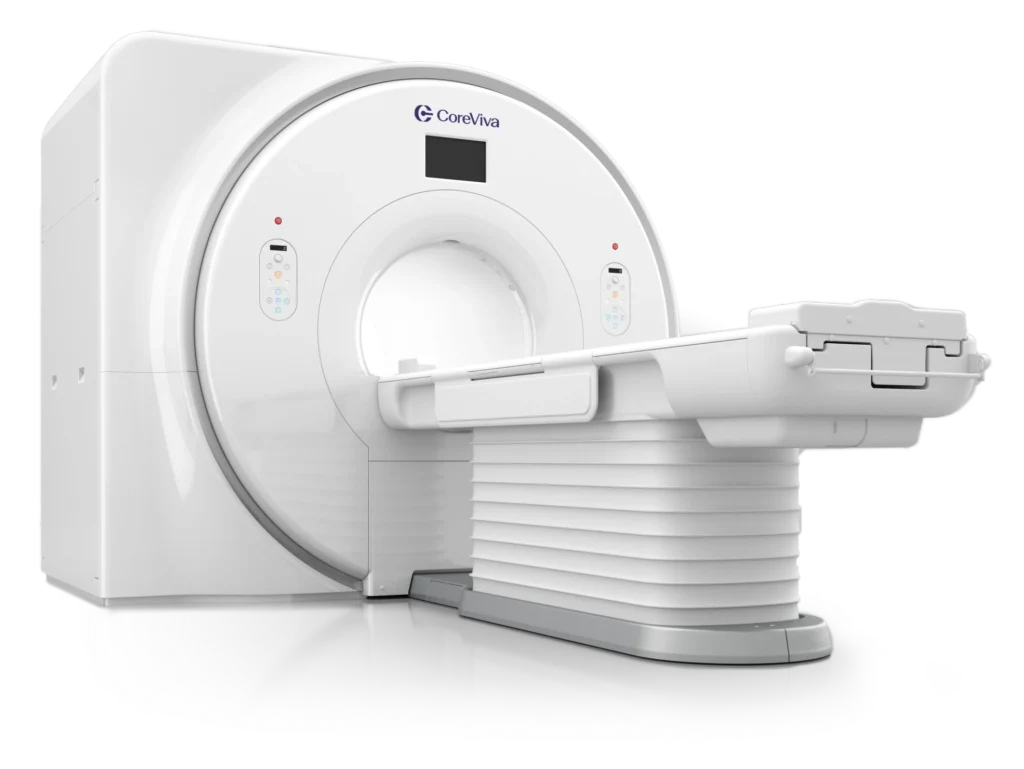Founded by two board-certified radiologists, the new Newport Beach clinic offers a more comprehensive and patient-focused approach to diagnostic imaging
As whole-body MRI gains traction in the realm of proactive health screening, a new venture led by physicians hopes to improve both the accuracy and experience of diagnostic imaging. CoreViva, founded by radiologists Dr. A. Alexander and Dr. Brian Tsui, officially opened its flagship clinic in Newport Beach, California, this month after operating in stealth for two years.
The founders bring experience from academic medicine and professional sports and note that the idea for CoreViva stemmed from repeated gaps they observed in standard whole-body MRI offerings.
“Working as a team physician for the LA Lakers and Dodgers showed me how impactful early detection can be,” said Dr. Alexander, who also previously led global medical imaging at McKinsey & Company. “But I wasn’t seeing imaging tools that consistently met that bar.”
Dr. Tsui, formerly on faculty at UCSF, pointed to recurring issues with scan interpretation during his clinical work.
“At UCSF, I saw patients who were told they had something serious on their previous scans—but it turned out to be nothing,” he said. “Others came in with persistent symptoms and had missed diagnoses. Whole-body MRI is powerful, but only if it’s done properly.”
CoreViva’s model centers on physician-led scan interpretation, supported by updated imaging hardware and AI tools intended to speed up scans while improving clarity. The technology includes higher-density coils for better signal quality and algorithms that assist with both image reconstruction and differentiating between benign and potentially serious findings.
“Technology helps, but it doesn’t replace expertise,” Dr. Tsui said. “That’s why every patient has a 1:1 consultation with the radiologist who read their scan. It reduces confusion and allows for clearer communication about what the images actually mean.”
In contrast to standard imaging workflows, where radiologists are not often in direct contact with patients, CoreViva integrates clinical consultation into the process to create a more informed and cohesive diagnostic experience.
Beyond identifying potential pathology, CoreViva includes personalized metrics such as brain age, musculoskeletal age and visceral fat levels. These metrics are intended to help patients track changes over time, particularly in response to interventions such as diet or exercise.
“Instead of vague assessments, we’re giving people numbers they can work with,” said Dr. Alexander. “You can see whether a specific change is having an impact on your internal health.”
The founders’ goal is to move away from one-off snapshots toward longer-term monitoring that supports healthspan, not just lifespan.
The company’s launch comes at a time when interest in preventive screening is growing, but questions remain about efficacy and equity in access. While CoreViva operates as a premium service, the founders argue that broader adoption of high-quality imaging could have public health benefits.
“Even though early-onset cancers have increased by over 80% in the last 30 years, most aren’t detected through standard screenings,” said Dr. Tsui. “We want to provide people with more information, earlier—especially when symptoms haven’t yet appeared.”



